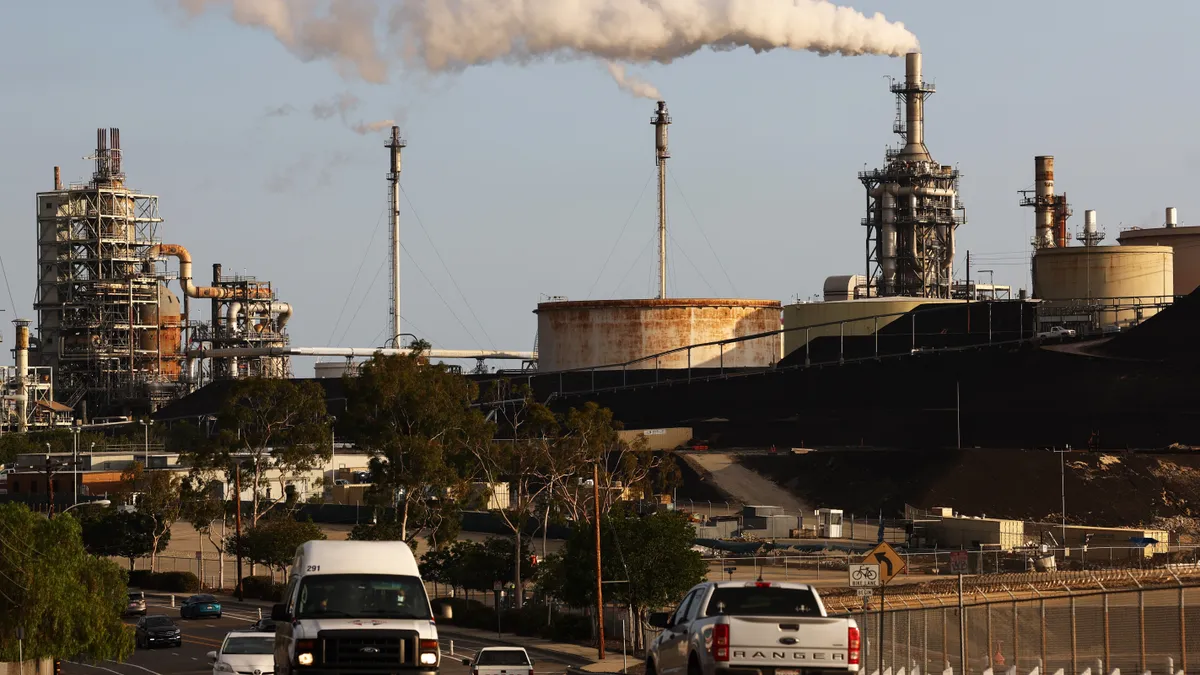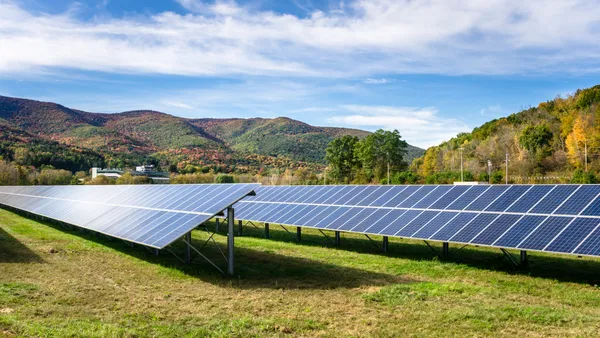Dive Brief:
- Some 80% of the largest oil and gas companies in the U.S. voluntarily reported their scope 1 and scope 2 greenhouse gas emissions in 2023, according to a recent study by EY. The firm based its research on the financial reporting of the 50 largest U.S. operators in the sector, which collectively represented approximately 42% of U.S. combined oil and gas production for 2023.
- The firm said more companies have begun making voluntary disclosures of certain ESG-related information. The rate of voluntary scope 1 and scope 2 reporting in 2023 represents a steady increase among the companies surveyed — up from 72% in 2022 and 64% in 2021.
- “As stakeholder and regulatory demand for ESG information increases, oil and gas companies have continued to respond by increasing their voluntary ESG disclosures through sustainability reports,” the study stated.
Dive Insight:
The annual report covering U.S. oil and gas reserves, production and ESG benchmarking, looked at how the industry navigated changes in 2023, including an increase in production despite significant price drops, as well as economic, regulatory and geopolitical uncertainty.
EY said the evolution of ESG reporting — with the formalization of regulated ESG reporting requirements and shareholder demands to draft greenhouse gas emissions management strategies — will require companies to increase their efforts to control costs while elevating emissions concerns to “drive synergies” between financial and environmental performance, according to insights that accompanied the study.
Study authors noted that a change in the rigor of sustainability disclosure and performance is fostering action on many GHG emissions reporting requirements. That change has been catalyzed by the finalization of the Security and Exchange Commission’s climate disclosure rule and requirements from the European Union and other jurisdictions, along with the United Nations Environment Program Oil and Methane Gas Partnership, the report said.
The growth of voluntary ESG reporting
EY did not assess compliance with any set of reporting requirements, but the study noted the increase in companies that voluntarily reported scope 1 and scope 2 emissions, as well as other disclosures.
Among the firms covered by the study, all integrated companies — those that carry out oil-refining and marketing activities as well as exploration and production activities — reported their scope 1, scope 2 and scope 3 emissions. These firms also said they obtained external assurance for their scope 1 and scope 2 emissions and their reporting included some climate-related targets or goals.
Among independent companies — those that do not have oil-refining and marketing activities but may have midstream operations — all of the large independents in the study reported their scope 1 and scope 2 emissions. Nearly two-thirds (63%) reported obtaining assurance for their scope 1 and 2 emissions, while 69% of large independents reported on scope 3 emissions. All of the large independents surveyed — which represented 32% of the included companies and 59% of U.S. oil and gas production in 2023 — said their reporting included climate-related targets or goals.
The reporting challenge was biggest for small independent oil and gas firms, which accounted for 58% of the included companies. Two-thirds (66%) of those firms reported their scope 1 and scope 2 emissions, with 21% receiving external assurance. Just 17% of respondents from this group reported scope 3 emissions, and 38% included climate-related targets or goals in their reports.
Beyond the increase in voluntary reporting, leading companies are also increasingly putting sustainability reporting on par with benchmarks for financial and operational performance. As such, sustainability is being seen less from a compliance perspective and more as a core part of a company’s growth strategy, study authors argued.
“The leading companies in the energy space are already shifting from the measure, report, verify (MRV) mindset to one where GHG footprints and impacts are elevated along with traditional financial and operational metrics in strategic decision-making,” Ryan Bogner, EY Americas digital sustainability leader for energy, said in the insights document.
EY cautioned that even though companies are working to invest in low-carbon business units, traditional oil and gas operations will likely continue for some time. However, with efforts to lower the carbon intensity of the energy system quickly and affordably, the industry will likely maintain a favorable competitive posture.
“Cost savings, efficiency and reliability in performing compliance obligations are important to shareholders today, but smart investments in carbon reporting infrastructure will also translate into opportunities in reduced-carbon areas and improved resiliency for these companies in the future,” Bogner said.











